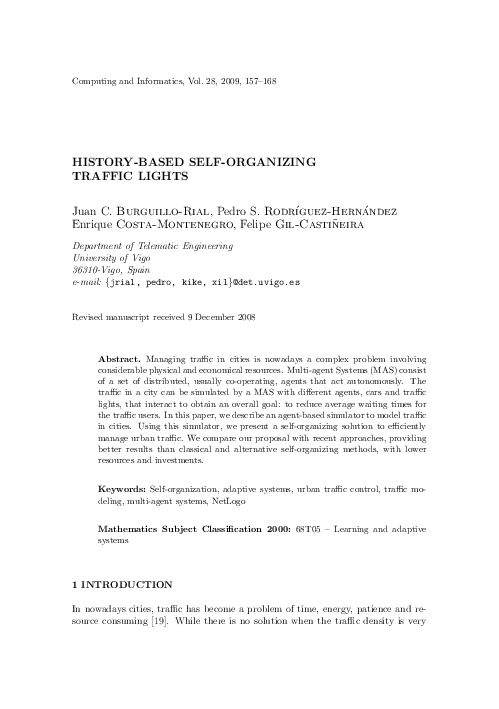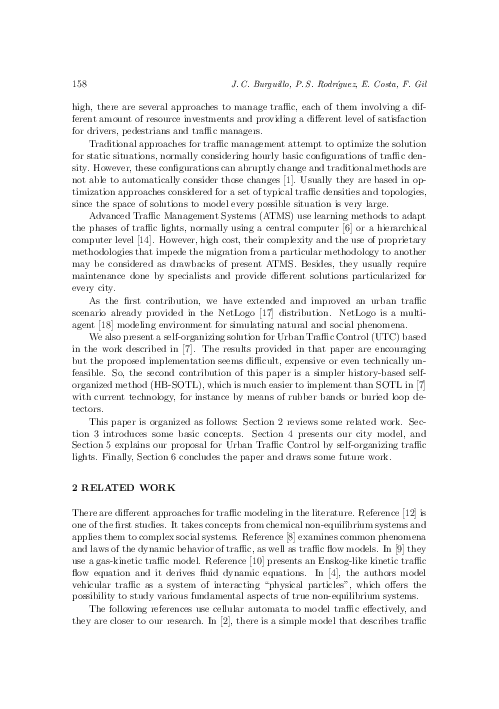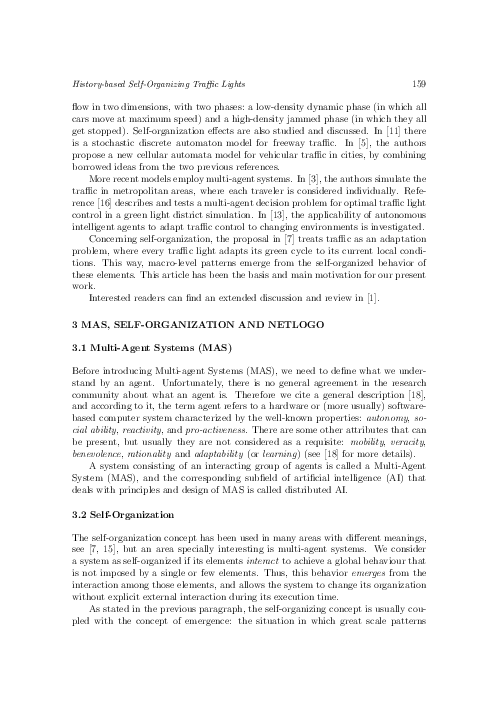History-based Self-Organizing Traffic Lights
keywords: Self-organization, adaptive systems, urban traffic control, traffic modeling, multi-agent systems, NetLogo
Managing traffic in cities is nowadays a complex problem involving considerable physical and economical resources. Multi-agent Systems (MAS) consist of a set of distributed, usually co-operating, agents that act autonomously. The traffic in a city can be simulated by a MAS with different agents, cars and traffic lights, that interact to obtain an overall goal: to reduce average waiting times for the traffic users. In this paper, we describe an agent-based simulator to model traffic in cities. Using this simulator, we present a self-organizing solution to efficiently manage urban traffic. We compare our proposal with recent approaches, providing better results than classical and alternative self-organizing methods, with lower resources and investments.
mathematics subject classification 2000: 68T05 -- Learning and adaptive systems
reference: Vol. 28, 2009, No. 2, pp. 157–168


